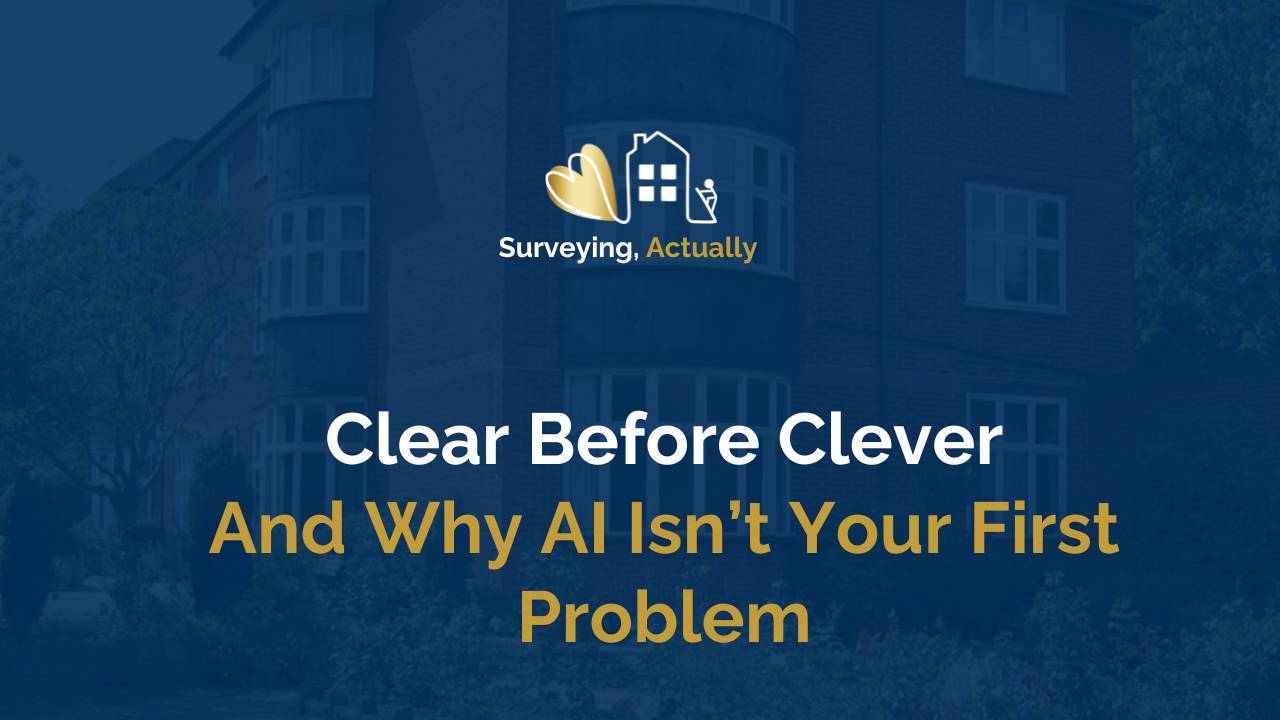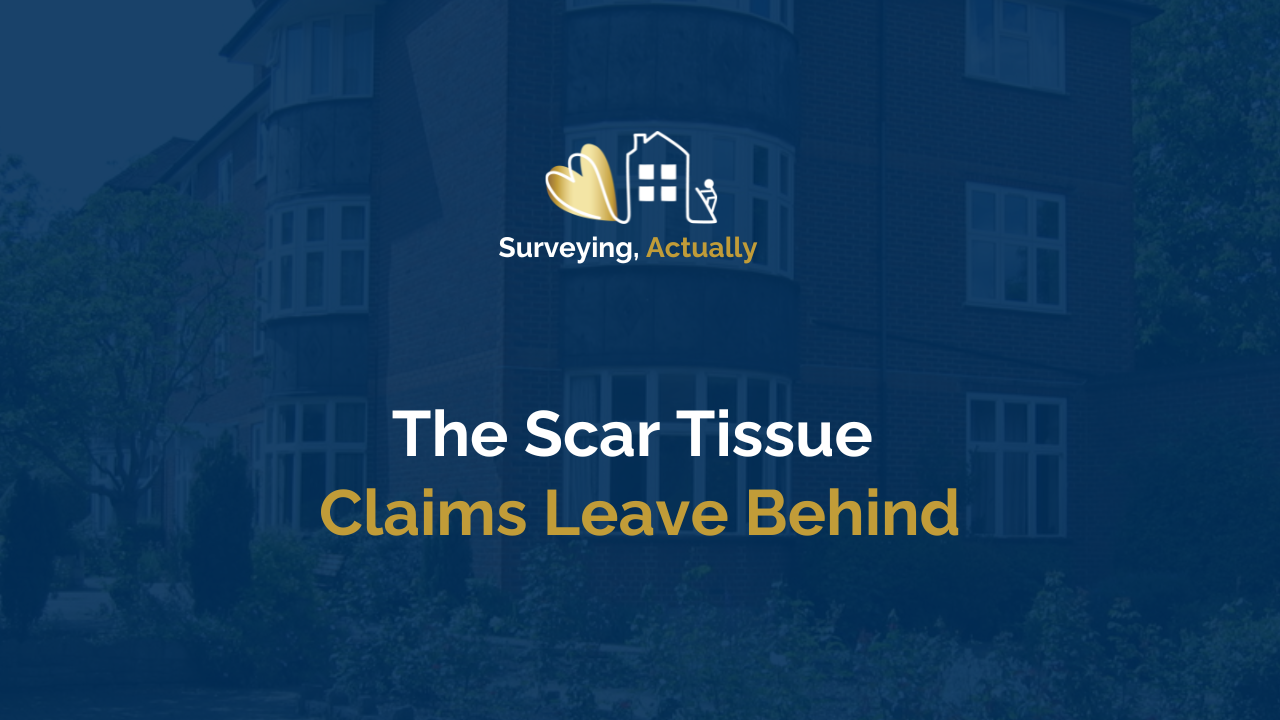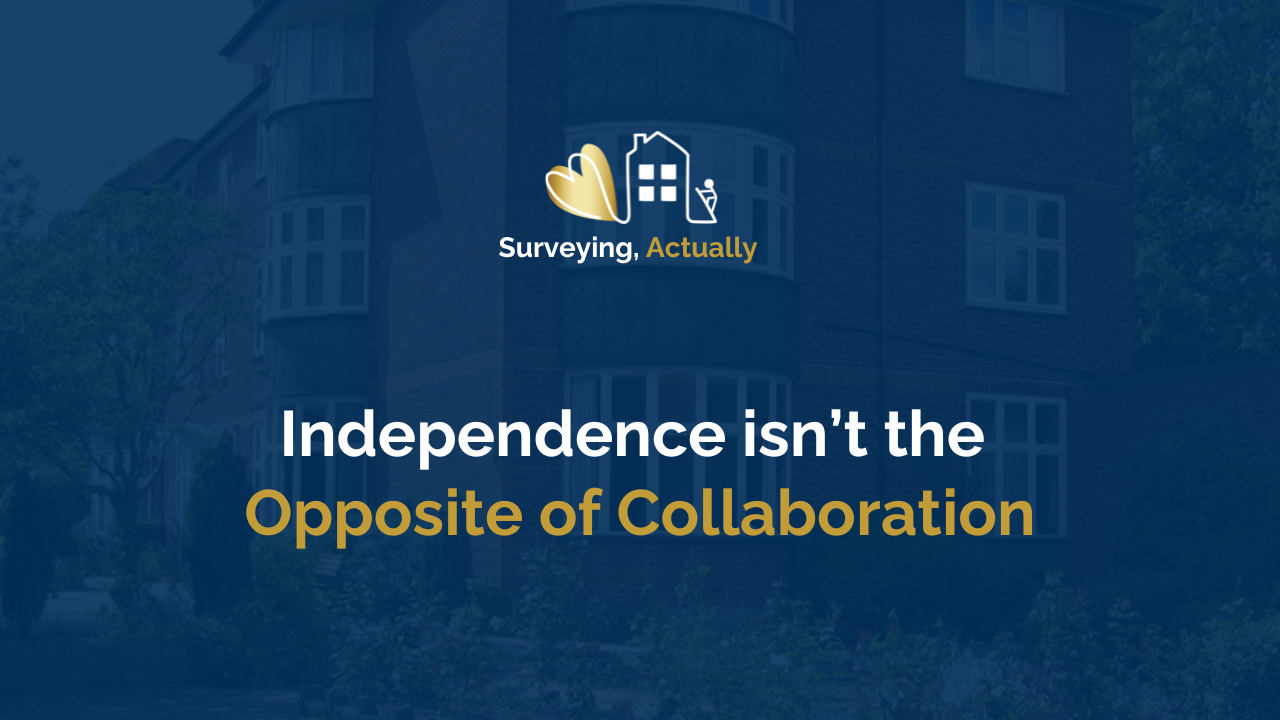Navigating the Future of Low-Carbon Homes
May 01, 2024
In a recent episode of the Surveyor Hub Podcast, Marion spoke with Emma Fletcher, Low Carbon Housing Director at Octopus Energy and Chair of the RICS Residential Professional Group Panel.
They talked about Emma's varied career in surveying and what it means to take the opportunity to do the hard work and ultimately turn your passions into a career. Emma shared her insights into the challenges and opportunities of decarbonising housing, the role of surveyors, and her journey to shaping the future of low-carbon living.
A Role Without Boundaries
“It's safe to say that in Octopus, we just have titles, no real job descriptions. They call it the dry stone wall,” Emma explains. “So you come in, and they bring in good people, and then you find your place and space within the wider Octopus team.” Reflecting on how she landed this role, she added, “It was the community project I'd done in my village as a volunteer that was noticed by Octopus CEO. He invited me in to talk about it, and I guess I had the right skill set at the right time.”
Emma’s work focuses on zero-bill homes, utilising innovative technologies like solar batteries and air-source heat pumps. “We’ve got a really cool technology that can optimise solar batteries and air-source heat pumps on brand new homes. That means we can eradicate bills for 10 years,” she explained. “But more exciting, probably, are the opportunities in the retrofit market. We’re working really hard to make zero bills work on deep-dive retrofits.”
Decarbonising: What Does It Mean?
Emma breaks down the complexities of decarbonisation for those unfamiliar with the concept. “In the Octopus world, it's basically about electrification and stopping the burning of fossil fuels. That is our primary driver,” she said. “Yes, there's loads of things you can do on the fabric of buildings, but that's not in our remit. At the end of the day, we're just an electricity provider or a tariff provider.”
Her work emphasises electrification across industries. “Even down to things like developers on site. Normally, they start with a generator on site that is also deemed to be burning fossil fuel. So there are some huge changes across the property industry that are going to have to be made,” she noted.
Supporting Surveyors Through the Transition
Emma acknowledged the hesitation some surveyors feel about these changes. “I think there's a lot of inquisitive people, but there's also a lot of people who are a bit scared of asking stupid questions, scared that they're a bit late to the journey,” she said. “Ironically, people aren't late; they're still in the very early stages.”
To address this, Octopus is creating opportunities for open discussions. “We're having a breakfast meeting where no questions are stupid. Come and ask. If you didn't really understand how solar panels work, come and ask us,” she encouraged. “Part of my role is translating the really clever stuff we do here at Octopus into what I would call layman's terms and ensuring that surveyors really understand it.”
She emphasised the importance of hands-on experience, sharing her own learning journey. “I've learned so much in 18 months, but I've also learned from having solar panels and batteries in my own home,” she said.
Bridging the Technology Gap
One of the barriers Emma identified is the rapid pace of technological advancement. “No one wants to have the mini-disc moment,” she joked. “When will technology stop evolving? When do you get on and actually buy something and commit? The honest answer is, things will be improving all the time.”
She compared the adoption of new technologies to purchasing a gas boiler. “You don't think, 'I'm going to wait another two years until a slightly more efficient gas boiler comes up.' You just buy another gas boiler,” she explained. “Waiting for the right moment? There is never going to be a right moment. You have to make a decision and go with it.”
Emma’s advice for surveyors is to embrace the uncertainty. “You can only know what you know right now and do the best job that you can based on the information that you've got. And that's okay,” she reassured.
Community Land Trusts
Emma shared the story of her village’s Community Land Trust (CLT), which she founded during her maternity leave. “I decided that my village was aging, and so I set up a Community Land Trust,” she recounted. “We built eight homes in the village, with others who I persuaded to come and join the trust.”
The project evolved to include a district heat network powered by renewable energy. “We generate water at 68 to 70 degrees, and that water goes through pipes, through the village and into people's homes. It works with every single home, regardless of how old it is or its fabric,” she explained. “And it means that you stop burning oil.”
Emma’s motivation stemmed from frustration with existing systems. “The motivation normally comes from being really pissed off,” she admitted. “I thought, 'I've got a responsibility to a child now, and no one's coming. If you want something done, you're going to have to roll up your sleeves and start it yourself.'”
Enjoy this article? You might also like - How to Achieve FRICS and What to Do When You Have.
Is this content useful? I'd love to hear your suggestions and recommendations. If you found this article helpful, please share it and show your support by leaving me a Google review, or you can Buy Me a Coffee. As a small business, it makes all the difference.





